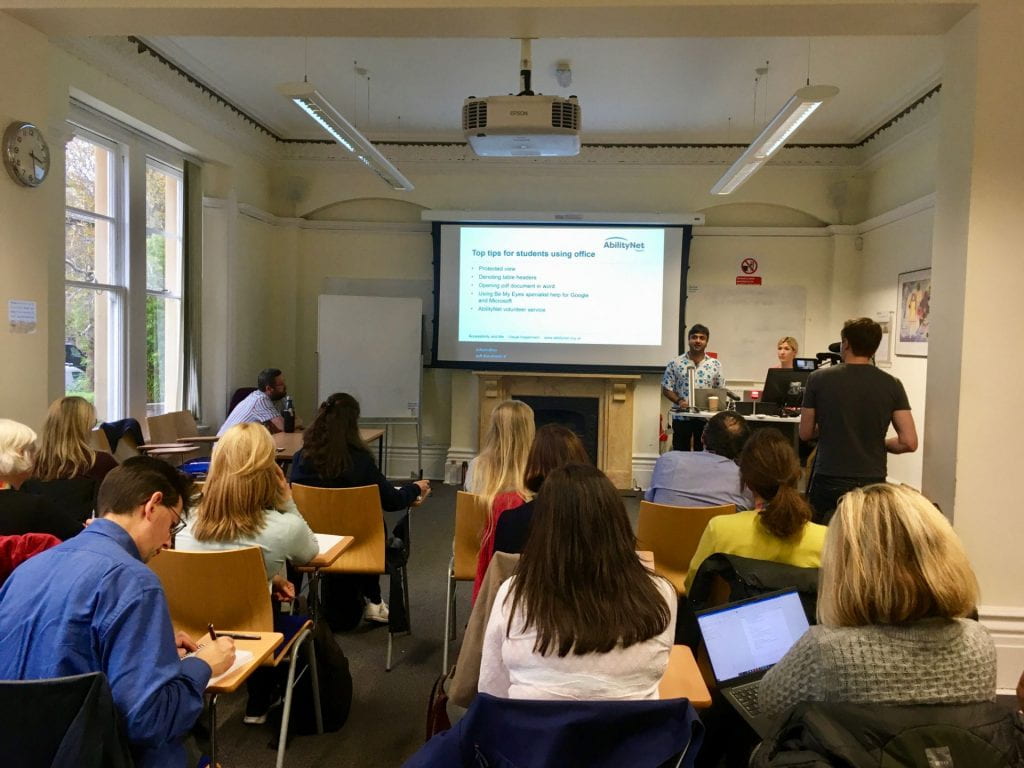 Last week we hosted the first of four Digital Accessibility sessions with AbilityNet, the UK charity supporting those with impairments or disability to use digital technology.
Last week we hosted the first of four Digital Accessibility sessions with AbilityNet, the UK charity supporting those with impairments or disability to use digital technology.
The first session focused on Sight Impairment and was presented by Adi Latif, an accessibility consultant with AbilityNet. Adi lost his sight in his teens as a result of a degenerative eye condition. Adi gave us a potted history of his experiences going into Higher Education and how technology had evolved and helped his journey since. From clunky archaic looking speaking watches to the Uber app, he painted a picture of the difficulties he’d had historically accessing the digital world and how he now uses tools to navigate both real life and online spaces.
It was humbling seeing him demonstrate how he uses assistive technology like screen readers or mobile phone apps to make sense of the world. The fact he was continuously slowing down the audio playback for these tools so we could understand the feedback really struck me. My experience of using screen reading tools to check over digital content I’ve created has been painful at best, with content read back at real time speeds. Adi appeared to be reading back at double time, if not faster.
Adi demonstrated some of the regular pitfalls sight impaired users come across accessing documents and covered some best practice to improve accessibility. He also covered just how awful an experience using a PDF file can be, essentially saying “Actually, if I hear a hyperlink say it’s a PDF I probably won’t open it”. After years of advising people to include a PDF it was slightly horrifying to learn that they are so inaccessible, and an alternative version should be included.
That makes sense when you consider that PDF is a format created for print, so is primarily concerned with creating an exact copy of the source material. I’ll certainly amend my practice on this front.
Adi discussed various ways to improve accessibility, from the Microsoft Accessibility Checker tool to Blackboard Ally.
This was a great first session with AbilityNet, we have three more to go focusing on:
- Digital Accessibility & Mental Health (sold out – wait list available via tickets button)
- Digital Accessibility & Physical Impairment
- Digital Accessibility & Neurodiversity (sold out – wait list available via tickets button)
We’ll be releasing some ‘Top Tips’ videos for each strand after the event. We’ll also try to make recordings of the sessions available.
If you would like to talk to the Digital Education Office team about Digital Accessibility, Blackboard Ally or just have related questions do feel free to contact us via:
Email: digital-education@bristol.ac.uk
Tel: +44 (0)117 42 83055 / internal: 83055